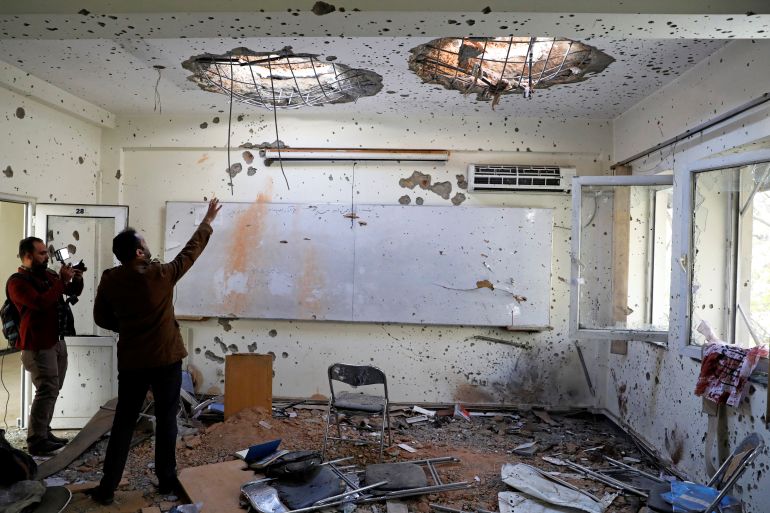We stand with Afghan scholars and students under attack
As international scholars, we are outraged by the attacks on universities and educational institutions in Afghanistan.

We, the undersigned international community of scholars, express our condemnation of the recent attacks targeting students and faculty in Afghanistan. These brutal attacks are part of a series of violent assaults against the innocent civilians of Afghanistan who are the primary victims of a protracted war.
On Monday, November 2, three militants stormed Kabul University and fired indiscriminately at students and faculty. The attack lasted for six hours, killing at least 35 people and wounding 50 more. Kabul University is Afghanistan’s pre-eminent academic institution, the oldest and largest campus in the country with more than 25,000 students. This was the second attack inside an educational institution in just more than one week in Kabul. On October 24, a suicide bomber attacked Kawsar-e Danesh, a tutoring centre in a predominantly Hazara neighbourhood, killing 43 and injuring 57 more. These two recent attacks represent a direct threat by extremist groups to a generation of students and scholars who are striving for a better future for their country.
Keep reading
list of 4 itemsTop USC graduate cancelled over Gaza speaks out
Columbia president faces anti-Semitism Congress hearing: What’s at stake?
Muslim pupil loses UK court bid over Michaela school prayer rituals ban
As international scholars, we are outraged by the attacks on universities and educational institutions in Afghanistan. We stand in solidarity with the families of the victims and all Afghans who risk their lives to pursue their education in conditions of war, violence and insecurity. Students and educators must be ensured safety and security while attending school, without any threat or fear for their lives and to be able to work, study, and learn in a protected and safe environment.
We condemn any form of harm to students and faculty by all actors engaged in the war in Afghanistan.
We demand from the Afghan government, the United States, the European Union, regional countries, international organisations, including the United Nations and the Organisation of Islamic Cooperation, to leverage their influence to:
- Investigate and prosecute the perpetrators of these indiscriminate and calculated attacks on civilian populations and protected sites, such as universities and educational centres.
- Safeguard the rights of students and educators and create concrete measures to protect and reduce the risk of any attacks on all educational institutions in Afghanistan.
- Hold all actors engaged in the war in Afghanistan accountable and pressure them to comply with the Geneva Convention and respect civilian lives during war.
- Investigate all sources of support to violent extremism in Afghanistan and ensure their cessation.
- Rally international concern against threats to civilian life, such as working with media organisations to publicly acknowledge and condemn violent actions that endanger the safety and security of the Afghan people.
- Work with all stakeholders, such as non-governmental and civil society organisations in Afghanistan, to ensure the continuity of safe education without the fear of violence or attack.
- Include the right to education and physical safety of students and educators as an urgent measure in the ongoing peace talks in Doha, Qatar.
Signatories:
Noam Chomsky, laureate professor, University of Arizona, Institute Professor Emeritus, Massachusetts Institute of Technology, USA
Dr AG Ravan Farhadi, professor emeritus and former ambassador of Afghanistan to the United Nations
Dr Victoria Fontan, vice president for academic affairs and peace professor, American University of Afghanistan (AUF), Afghanistan
Dr M Nazif M Shahrani, professor of Anthropology, Central Asian and Middle Eastern Studies, Indiana University, Bloomington, Indiana, US
Wali Ahmadi, professor of Near Eastern Studies, University of California, Berkeley, USA
Dr Fatima Mojaddedi, assistant professor of Anthropology, UC Davis, USA
Dr Ahmad Sarmast, founder and director of Afghanistan National Institute of Music, Afghanistan
Daryoush Ashouri, writer and researcher, France
Amin Saikal, distinguished professor of Political Science and director of the Centre for Arab and Islamic Studies, The University of Western Australia, Australia
Robert Crews, professor of History, Stanford University, USA
The full list of signatories can be accessed here.
The views expressed in this article are the authors’ own and do not necessarily reflect Al Jazeera’s editorial stance.